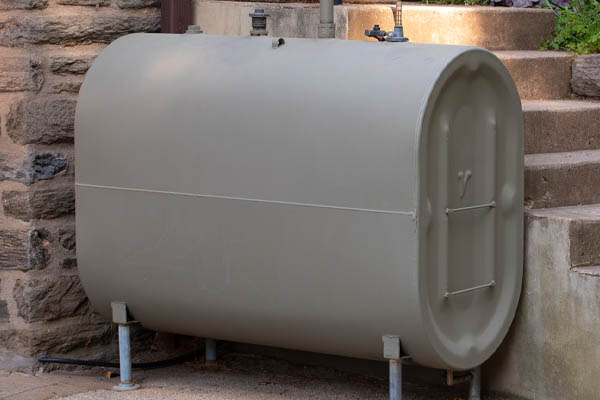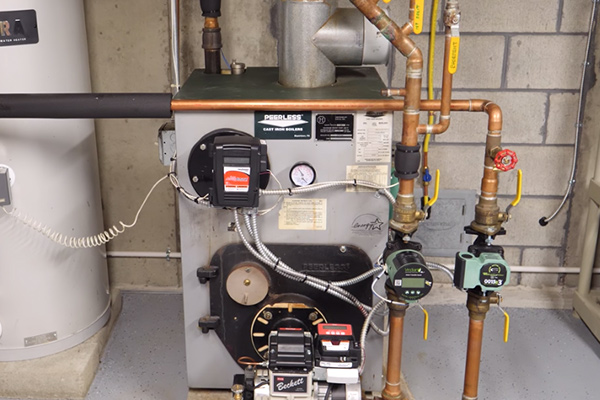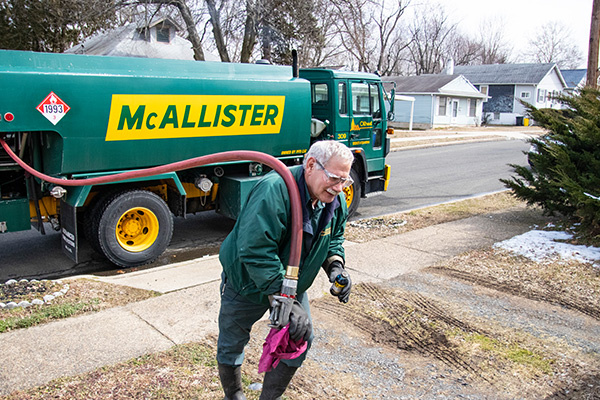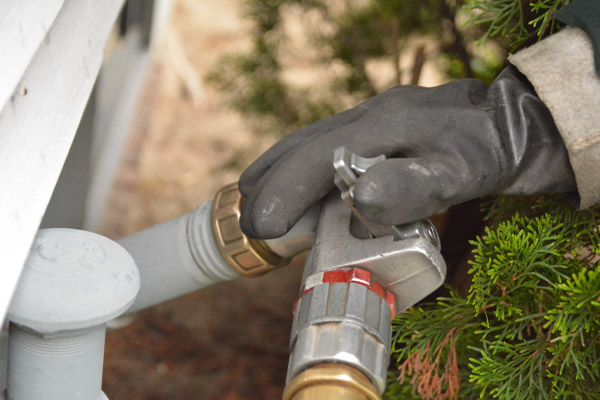How Does Sludge Form In A Heating Oil Tank?

Your home’s heating oil tank is more than just a storage unit; it’s the key to a warm and cozy environment during chilly seasons. Depending on its size and how much fuel you use, a tank can store enough fuel that will keep your home heated for many months. However, just as with anything, oil tank care is crucial. A common issue homeowners face is the development of a thick, troublesome residue known as heating oil tank sludge. Although inevitable, understanding its formation and prevention can significantly delay its onset. This article discusses heating oil tank sludge and how to keep it at bay.
The Formation of Heating Oil Tank Sludge
Contents
When you look inside a heating oil tank, it’s not just fuel you’ll find. There’s a medley of dirt, moisture, rust fragments, and microorganisms. When these settle at the tank’s bottom, they meld together, forming the notorious heating oil tank sludge. Particularly, nearly empty tanks that are often left unattended post-winter become more susceptible. Picture this: You’re welcoming the first warmth of spring, forgetting all about the tank until winter’s chill begins to bite again. While you’re blissfully unaware, a fuel delivery professional might detect the growing heating oil tank sludge during a refill.
Related Article: 10 Ways to Save Money on Heating Oil Costs
What’s Brewing Inside the Tank?

Each tank has a vent pipe, a simple yet crucial feature that balances air pressure. As oil is pumped in, air whistles out; air drifts back in as the fuel is consumed. It ensures the tank’s internal pressure remains stable. However, there’s a downside. Cold air can cause moisture to condense on the inside walls. Over time, this moisture fosters rust, eventually breaking off and settling at the bottom. As the leftover fuel interacts with elements like rust, light, heat, and bacteria, sludge starts to form.
Stay ahead of this issue by understanding its root causes and taking preventive measures. Doing so can ensure your heating oil tank stands the test of time.
The Consequences of Ignoring Heating Oil Tank Sludge
Heating oil tank sludge isn’t just an unpleasant mess inside your oil tank; it can bring about a range of complications. Let’s explore some of the primary problems associated with tank sludge.
Related Article: The Importance Of Regular Heating Oil Filter Replacements
Compromised Energy Efficiency
Taking the time to address oil tank sludge is essential for maintaining your heating system’s peak performance. With its dense and viscous nature, sludge can obstruct the supply line and even block the oil filter. When this happens, your heating system struggles to receive the necessary fuel. Even when some oil does seep through, the obstructions can hamper energy efficiency, making your heating efforts more expensive in the long run.
Potential Heating System Malfunctions

Heating oil tank sludge buildup isn’t just an inconvenience; it’s a ticking time bomb for your heating system. Over time, if left unaddressed, sludge can infiltrate sensitive components, leading to potential damage. In extreme cases, this results in a complete system shutdown, with furnaces or boilers rendered inoperative. Reactivating your system could mean shelling out for extensive HVAC repairs.
Moreover, prolonged neglect could compromise some oil tanks, especially if they become rusty. If you find your tank wall weakened by rust, it might be time for a replacement. These fragile walls aren’t just inefficient but are accidents waiting to happen.
Strategies for Warding Off Heating Oil Tank Sludge
It’s an age-old adage: prevention is the best remedy. To sidestep the hassles linked with sludge, adopt these proactive measures to keep a spotless and obstruction-free tank.
Related Article: How Does Oil Heating System Work?
Prioritize Timely Fuel Deliveries

Low fuel levels in a tank enhance the likelihood of sludge buildup. This is because more air, laden with moisture, enters, leading to condensation on the tank’s interior. It’s crucial to refill before reaching critically low levels. A nearly empty tank raises the risk of a clogged fuel line and can leave your household suddenly without heat. Establish a relationship with your local supplier for regular top-ups.
Related Article: What Do Heating Oil Additives Do?
Integrate Heating Oil Additives
Incorporating specific chemical additives can act as a shield against sludge formation. Introduce them prior to your fuel delivery, as they can dissolve existing sludge, easing cleanup. Ensure the additive contains a dispersing agent. While numerous options can be found online, seek ones that offer additional benefits such as algae prevention, moisture elimination, and wax prevention. Applying this treatment once every heating season is usually sufficient. Additionally, some suppliers already mix in additives, so always inquire about this beforehand.
Shower Your Tank with Care
Regular upkeep goes a long way. Change out oil filters periodically and enlist experts for thorough tank evaluations. These trained eyes will spot potential issues, like clogs or sludge accumulation, rectifying them before they escalate.
Opt for Superior Home Heating Oil

While many view heating oil as a standardized product, the quality does vary. Premium oils contain fewer impurities that may evolve into sludge. Partner with a well-regarded supplier in your vicinity. Tapping into local recommendations can also lead you to suppliers who offer impeccable fuel and preventive guidance.
Related Article: Can I Put Diesel Fuel in My Home Heating Oil Tank?
Aim for a Consistently Full Tank To Avoid Heating Oil Tank Sludge
Most households only think of refills during winter, neglecting their tanks through warmer months. This inadvertently creates the ideal environment for rust and sludge genesis. A simple fix is to maintain a full tank year-round, even when the heating isn’t in use. This displaces moist air, curbing the onset of rust and bacterial proliferation.
In Closing
While oil tanks may seem static, a lot is happening within. The interplay of air, fuel, and moisture can pave the way for corrosion and microbial activity. By ensuring your tank remains clean and sufficiently filled, sourcing quality oil, and leaning on experts for periodic check-ups, you can effortlessly prevent the onset of heating oil tank sludge.
Related Article: How to Read Your Home Heating Oil Tank Gauge
Call McAllister Energy For All Your Home Heating Needs

For all your HVAC and oil delivery needs, contact McAllister Energy. We have some of the most highly qualified and professionally certified technicians in Southern New Jersey. Each of our friendly techs can conduct all kinds of HVAC services, such as oil tank upgrades, boiler repair, ductless installations, furnace replacements, and more. We have various oil delivery plans and financing options. This way, you can customize your fuel deliveries to meet your needs. Our heating oil delivery and HVAC services are affordable and are done accurately and promptly at all times.
All of our services come with a guarantee. Our HVAC maintenance services improve your energy efficiency and home comfort while decreasing your HVAC costs. We can also assist you when you need to replace your heating and cooling system. We will help you find the best make and model for your home without sacrificing your budget. Our experts have the skills, training, and experience to ensure that all your home comfort needs are met. Book an appointment with us today. Call McAllister Energy for a free, in-home estimate.
You can click here to contact us now or call us at (856) 665-4545 to find out more! Click the link to view our service area.